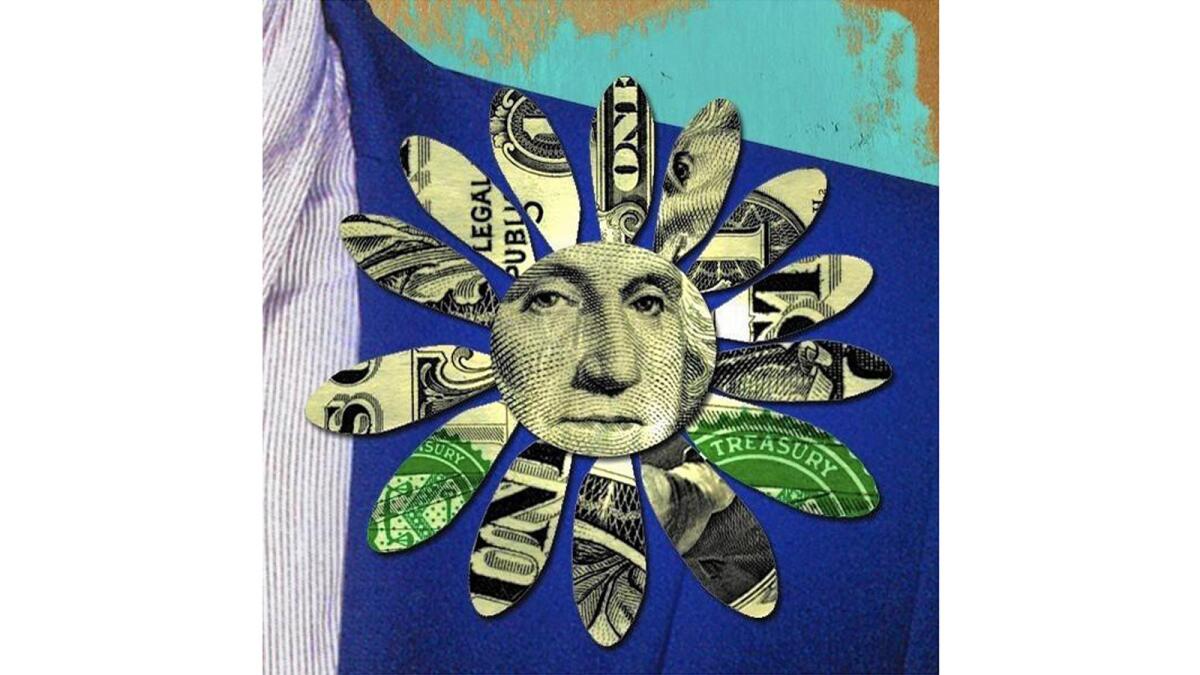16 ways to whip your home finances into shape in 2016

You did all that holiday shopping. Now you need to face all those bills.
Gulp.
We interviewed two finance experts — Greg McBride, the chief financial analyst at Bankrate, and Jean Chatzky, the financial editor for NBC’s “Today” show — and compiled 16 tips for getting your financial house in order in 2016.
1. Get a grip. “Get a handle on the grand total,” McBride said, “How much [have] you put on the credit cards?”
2. Get real. “Figure out how long it’s going to take you to dig out … and where you’ll be able to come up with the money,” Chatzky says.
3. Set reasonable spending and saving goals, and write them down. “If you give yourself a goal that’s too ambitious,” Chatzky says, “it doesn’t happen, people get demoralized and the debt drags on.”
4. Consider dipping into your savings: “The money in your savings account is earning max, 1%,” McBride says. “You’re paying a lot more [interest] on the credit cards. Knock out the credit card debt.”
5. And then commit to putting it all back. “Outline how to replenish the savings,” McBride says. “How much can you set aside each pay period?”
6. Don’t blow it. “The average tax refund is about $3,000,” Chatzky says. If you are expecting money back in April, consider paying off debt, investing, or saving for a personal goal.
7. Hustle. Make extra money on the side to pay debt or save for goals. Think: freelance gig, EBay, Uber, Airbnb, garage sale, and in L.A., maybe movie extra? Be creative.
8. Don’t forget the extra paycheck. For employees earning weekly pay, the five-week calendar in January offers a bonus check. Use the windfall wisely.
9. Conduct a review. Tally up expenses from last year to create a spending baseline for the year ahead. Identify areas where spending went overboard, then plan accordingly.
10. Ditch the guilt. “[It] doesn’t get you anywhere,” Chatzky says. Instead, examine the motivation behind your spending habits “so you won’t do it again.”
11. Keep a spending log. “Not just of what you bought and how you paid for it, but how you felt about it when you bought it,” Chatzky says, and how you felt about the purchase a week later and a month later. “It helps you line up your values with your spending.”
12. Make a plan to save for retirement and emergencies. “You can do whatever you want with the rest,” Chatzky says.
13. Automate payments for both your retirement plan, and your saving accounts.
14. Don’t assume you’re bad with money. “Nobody trains anybody to do this,” says Chatzky. “Feeling like you’re not good with money probably just means you’re not paying enough attention to where it is going — and you’re feeling a little out of control,” Chatzky says.
15. Make a commitment in 2016 to take control of your finances in 2016. One easy fix: Just signing on regularly to your bank account and watching where the money goes will help.
16. Plan for big expenses like holidays, or vacations. Most banks and credit unions allow free accounts for maintaining a minimum balance: Earmark accounts for personal goals, like a vacation. Figure out how much you want to spend, divide that amount into monthly deposits and just imagine how great it will feel to pay off Christmas 2016 with cash.
ALSO:
Organization experts help you clear the holiday clutter with 12 months of tips
28 things to do to prepare for El Niño rains this season
A tiny kitchen, but it lets at-risk girls work from seed to skillet






